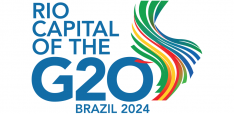A Call to Support Frontline Humanitarian Negotiators around The Globe

On World Humanitarian Day, Sydney Kamen, Isabel Kleitsch, Matthew O’Bryan and Blaise Robert issue an important call to support the vital work of humanitarian negotiators with the power to ensure the IMF keeps its pandemic promises.
Negotiators in the international humanitarian community must be better supported in the battle against COVID-19 in conflict regions around the world. On World Humanitarian Day, let us not only recognize and honor humanitarian workers, but also take action to actively support those serving on the frontlines.
In early July, the International Monetary Fund (IMF) announced it would make $650 billion available to low- and middle-income countries with a focus on providing liquidity for COVID-19 vaccines, with the stated goal of vaccinating at least 40 percent of their populations by the end of this year.
While this underscores the international community’s focus on the supply of vaccines to the world’s most vulnerable and deprived, the investment in vaccines will only pay off if they end up in peoples’ arms, including those in the most remote, hard-to-access communities. Without humanitarian negotiators, this will not happen.
Humanitarian negotiators work on the frontlines of crises where aid is needed but responding humanitarian organizations face barriers to access civilians. It is the daily task of these negotiators to establish relationships of trust with counterparts and increase mission-tolerance in order to find ways for humanitarian organizations to operate in otherwise inaccessible spaces.
As challenging as it is to access remote communities, particularly those in the midst of conflict, doing so is essential to combatting the COVID-19 pandemic. The many pockets of unvaccinated people are fertile grounds for the emergence of new variants, and time is of the essence. Humanitarian workers around the globe must be equipped to turn the IMF’s investment into a successful reality.
The international community needs to, for instance, convince Houthi rebels in Northern Yemen and Taliban fighters in the remote mountain villages of Afghanistan to allow truckloads of vaccines into their territory carrying health staff with the know-how to administer the shots.
Likewise, potential vaccine recipients in these communities need to be assured of the importance and safety of the vaccine. Where basic human needs like shelter, food and clean water are not met, COVID-19 is not necessarily a first-order priority, and it is essential to convince people of the importance of preventing the spread of the disease.
It is the work of humanitarian negotiators to operate on these frontlines daily. With institutional mandates to get populations in conflict settings vaccinated, they broker deals with those deemed by some to be terrorists, non-state armed groups, and violent gangs. They listen to the concerns and fears of marginalized populations around the vaccines and the virus, while at the same time addressing more immediate threats, like food and water shortages.
Numerous case studies illuminate the challenges international humanitarian professionals face in negotiations with stakeholders on the ground. Yet, the term “humanitarian negotiations” is still widely contested, with both humanitarian organizations, as well as their staff members, failing to acknowledge that negotiating is an essential part of humanitarian action.
Recognizing the critical role of humanitarian negotiators on the frontline, the international community must step up and provide these actors with the tools and resources they require to succeed. In addition to physical resources, the work of negotiators needs to be facilitated through dedicated training and increased collaboration across humanitarian agencies. Sharing of experiences and coordination among practitioners and negotiation counterparts is necessary to improve outcomes, especially in a time of declining safety for humanitarian missions.
As the international community races to vaccinate the world, frontline humanitarian negotiators must be recognized as the mission’s critical actors and supported as such. Without frontline humanitarian negotiators, who we celebrate on this World Humanitarian Day, the global COVID-19 nightmare will not end. We know that no one will be safe until everyone is safe. And we will not be safe without frontline humanitarian negotiators and the vaccination access they work to secure for tens of millions of people around the world.
The authors are Harvard University graduate student researchers working on humanitarian access negotiations, specifically negotiating COVID-19 vaccination access in conflict settings.
Photo by RF._.studio from Pexels


